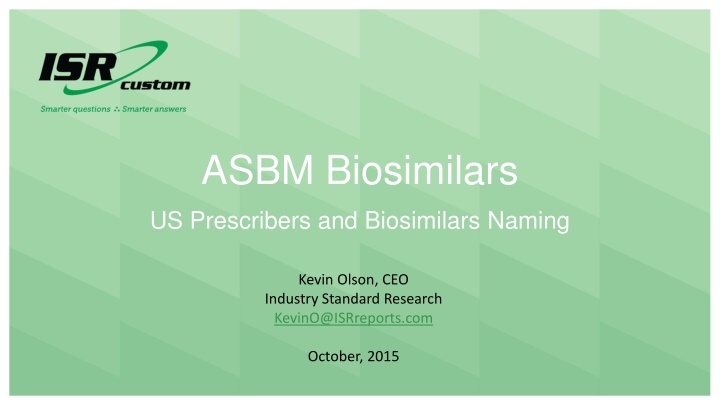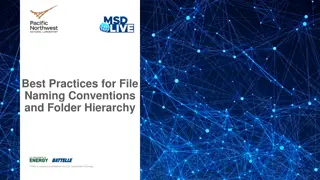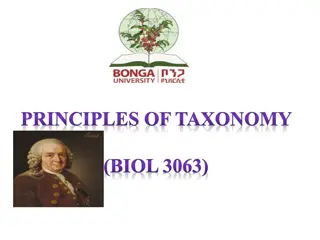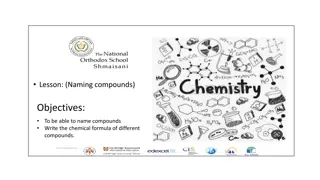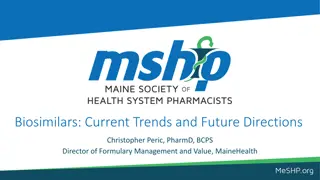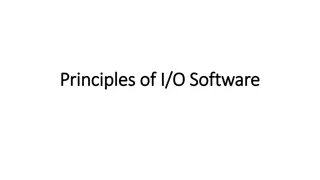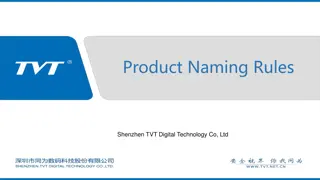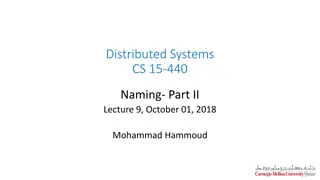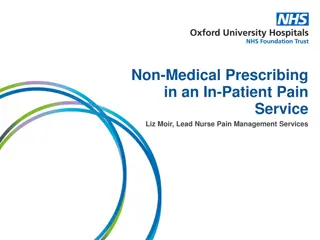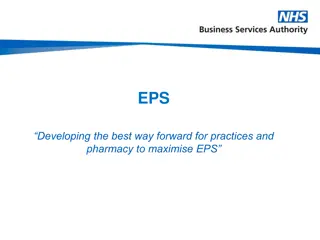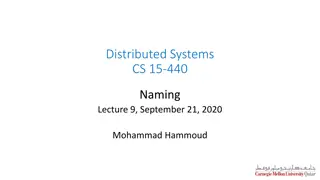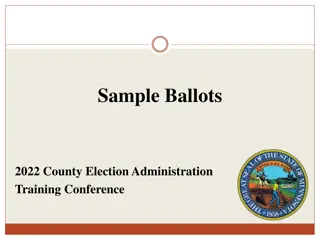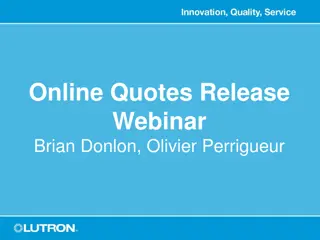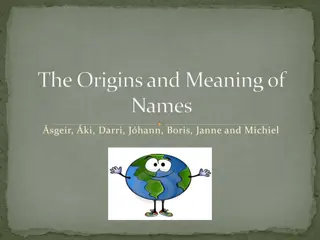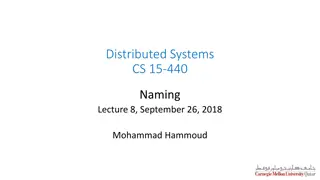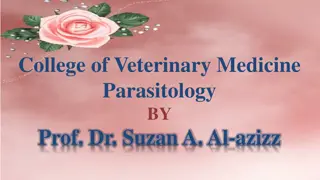Insights on US Prescribers and Biosimilars Naming Practices
This report, conducted in October 2015 by Industry Standard Research, delves into the attitudes and beliefs of US prescribers regarding biosimilars naming. The study methodology included a web-based survey of 400 prescribers specializing in various therapeutic areas. Key findings cover practice settings, years in practice, therapeutic specialties, volume of patient visits, and more. The data provides valuable insights into the landscape of biosimilars adoption among healthcare professionals in the US.
Download Presentation

Please find below an Image/Link to download the presentation.
The content on the website is provided AS IS for your information and personal use only. It may not be sold, licensed, or shared on other websites without obtaining consent from the author.If you encounter any issues during the download, it is possible that the publisher has removed the file from their server.
You are allowed to download the files provided on this website for personal or commercial use, subject to the condition that they are used lawfully. All files are the property of their respective owners.
The content on the website is provided AS IS for your information and personal use only. It may not be sold, licensed, or shared on other websites without obtaining consent from the author.
E N D
Presentation Transcript
ASBM Biosimilars US Prescribers and Biosimilars Naming Kevin Olson, CEO Industry Standard Research KevinO@ISRreports.com October, 2015
Table of contents Page 3 12 20 32 Methodology Drug Recording Practices Product Naming Attitudes and Beliefs Substitution Attitudes and Beliefs ASBM - US Prescribers and Biosimilars Naming 2
ASBM METHODOLOGY
Study methodology 400 prescribers 15-minute web-based survey All participants based in the U.S. Participants recruited from large, global panel of healthcare professionals Participants screened as follows: Specialize in one of 7 therapeutic specialties, including: Dermatology, Endocrinology, Gastrointestinal, Nephrology, Neurology, Oncology, Rheumatology Must have been in practice for 1 year or more Participants received a standard cash stipend for their time Study was sponsored by ASBM and administered by Industry Standard Research, LLC ASBM - US Prescribers and Biosimilars Naming 4
Sample characteristics Practice Setting Years in Practice Academic Medical Center 26% More than 30 years 6% Community setting 25% 21-30 years 21% Private, family practice 20% 11-20 years 32% Multi-specialty clinic 18% Hospital 7% 6-10 years 33% Payer-integrated practice / system 2% 1-5 years 7% Military / VA Hospital 2% Less than 1 year 0% Other 1% 0% 5% 10% % of Respondents 15% 20% 25% 30% 0% 5% 10% 15% 20% 25% 30% 35% % of Respondents ASBM - US Prescribers and Biosimilars Naming 5
Therapeutic specialty Rheumatology 14% Please indicate your primary practice area or therapeutic area in which you practice. Oncology 16% Neurology 14% Nephrology 14% Gastrointestinal 14% Endocrinology 15% Dermatology 13% 0% 5% 10% 15% 20% % of Respondents ASBM - US Prescribers and Biosimilars Naming 6
Volume of patient visits On average, about how many patient visits do you conduct per week? More than 50 77% 20-50 21% Fewer than 20 1% 0% 20% 40% % of Respondents 60% 80% 100% ASBM - US Prescribers and Biosimilars Naming 7
Familiarity with Orange Book Question Very familiar 13% How familiar are you with the Orange book , that is, the resource for Approved Drug Products with Therapeutic Equivalence Evaluations? Somewhat familiar 33% Vaguely familiar 26% I've never heard of it 28% 0% 5% 10% 15% 20% 25% 30% 35% % of Respondents ASBM - US Prescribers and Biosimilars Naming 8
Frequency of Orange Book use Question Daily 4% How often in your work do you use or refer to the Orange Book ? Weekly 17% Monthly 14% Rarely 28% Never 37% 0% 5% 10% 15% 20% 25% 30% 35% 40% % of Respondents ASBM - US Prescribers and Biosimilars Naming 9
Familiarity with Purple Book Question Very familiar 8% How familiar are you with the Purple Book , that is, the resource for Lists of Licensed Biological Products with Reference Product Exclusivity and Biosimilarity or Interchangeability Evaluations? Somewhat familiar 23% Vaguely familiar 28% I've never heard of it 41% 0% 10% 20% 30% 40% 50% % of Respondents ASBM - US Prescribers and Biosimilars Naming 10
Frequency of Purple Book use Question Daily 4% How often in your work do you use or refer to the Purple Book ? Weekly 11% Monthly 12% Rarely 23% Never 51% 0% 10% 20% 30% 40% 50% 60% % of Respondents ASBM - US Prescribers and Biosimilars Naming 11
ASBM DRUG RECORDING PRACTICES
Prescribe biologics? No, 13% Question Do you prescribe biologic medicines in your practice? Yes, 87% ASBM - US Prescribers and Biosimilars Naming 13
Others patients? I don't know, 10% Question Do you commonly treat patients who you are aware are being prescribed biologic medicines by another health care provider? No, 14% Yes, 77% ASBM - US Prescribers and Biosimilars Naming 14
Identify in patient record Someone else s patient No, 1% Question When you treat a patient receiving a biologic medicine prescribed by another health care provider, do you identify the medicine in the patient record? (N=309, those who commonly treat patients being prescribed biologic medicines by another health care provider) Yes, 99% ASBM - US Prescribers and Biosimilars Naming 15
Identify in patient record? Question When you prescribe medicine, whether chemical or biologic, do you identify the medicine in the patient record? Yes, 100% ASBM - US Prescribers and Biosimilars Naming 16
How biologics are identified Question Varied by medicine 39% When you identify a medicine for prescription or recording in a patient record, are you more likely to identify the medicine by brand name, non-proprietary / scientific name, or NDC number? Brand name 34% How does it vary? Scientific name 25% NDC number 1% Other 1% 0% 10% 20% 30% 40% 50% % of Respondents ASBM - US Prescribers and Biosimilars Naming 17
Identification for reporting AEs Question Brand name 47% Physicians play an important role in the identification and reporting unexpected or serious adverse events to FDA and manufacturers. In the context of identifying a biologic (or, if you don t prescribe biologics, any other drug) for purposes of reporting an adverse event, would you prefer to identify the medicine by a product name or number (National Drug Code number)? Scientific name 38% NDC number 2% No preference 13% 0% 10% 20% 30% 40% 50% % of Respondents ASBM - US Prescribers and Biosimilars Naming 18
Recording changes in patients file Question Always 48% When a pharmacy contacts you regarding a change in the medicine a patient receives (for example, to request approval for a change due to insurance coverage), how often do you record that change in the patient's file? Often 25% Sometimes 19% Rarely 6% Never 2% 0% 10% 20% 30% 40% 50% 60% % of Respondents ASBM - US Prescribers and Biosimilars Naming 19
ASBM PRODUCT NAMING ATTITUDES & BELIEFS
Structurally identical? No opinion, 12% Question In the US, all medicines must have a non-proprietary scientific name upon approval. The manufacturer may choose to also designate a brand name for the product. If two medicines have the same non-proprietary scientific name, does this suggest to you or imply that: the medicines are structurally identical? No, 16% Yes, 72% ASBM - US Prescribers and Biosimilars Naming 21
Both produce same result? No opinion, 11% Question In the US, all medicines must have a non-proprietary scientific name upon approval. The manufacturer may choose to also designate a brand name for the product. If two medicines have the same non-proprietary scientific name, does this suggest to you or imply that: a patient could safely receive either product and expect the same result? No, 21% Yes, 68% ASBM - US Prescribers and Biosimilars Naming 22
Switch with same result? No opinion, 14% Question In the US, all medicines must have a non-proprietary scientific name upon approval. The manufacturer may choose to also designate a brand name for the product. If two medicines have the same non-proprietary scientific name, does this suggest to you or imply that: a patient could be safely switched between the products during a course of treatment and expect the same result as treatment with only one of the products? No, 25% Yes, 60% ASBM - US Prescribers and Biosimilars Naming 23
Biologic medicines are therapeutic proteins produced using living cells. A copy of an original biologic made by a different manufacturer is referred to as a biosimilar or follow-on biologic rather than a generic because it will be similar, not identical, to the product it copies. Biosimilars are also referred to as subsequent entry biologics (SEBs) in Canada. In short, biosimilars are copies of biologic medicines, whereas traditional generic medicines are generally based on chemical products. As a result of the new biosimilar pathway to approval, biosimilar medicines are now available in the US market. BIOSIMILARS INTRO
Familiarity with biosimilars Question Very familiar, I have a complete understanding of them 20% How familiar are you with biosimilar medicines? Familiar, have a basic understanding of them 61% I've heard of them but could not define them 15% Have never heard of them 4% 0% 10% 20% 30% 40% 50% 60% 70% % of Respondents ASBM - US Prescribers and Biosimilars Naming 25
Awareness of biosimilars approval process Question Originator medicines are approved by the US Food and Drug Administration based on an evaluation of clinical data that demonstrates a medicine is safe and effective for the specified indication and data must be provided for every indication. The approval pathway for biosimilars is different than for originator medicines. Are you aware a biosimilar medicine may be approved for several or all indications of the reference product on the basis of clinical trials in only one of those indications? No, 28% Yes, 72% ASBM - US Prescribers and Biosimilars Naming 26
Acceptability of biosimilars approval process Question This is totally acceptable 15% How do you feel about the fact that a biosimilar medicine may be approved for several or all indications of the reference product on the basis of clinical trials in only one of those indications? This is somewhat acceptable 46% This is somewhat unacceptable 33% This is totally unacceptable 6% 0% 10% 20% % of Respondents 30% 40% 50% ASBM - US Prescribers and Biosimilars Naming 27
Should FDA require distinct names? Question No opinion, 23% The FDA has proposed a new policy that would require every biologic whether originator or biosimilar to have a distinct non-proprietary scientific name. In your opinion, should the FDA require a distinct non- proprietary scientific name for every biologic product whether originator or biosimilar approved by them? No, 11% Yes, 66% ASBM - US Prescribers and Biosimilars Naming 28
Representative or random suffix? Question The FDA has proposed a policy that would require the use of a distinct non-proprietary scientific name for all products, whether originator or biosimilar. This is intended to aid the process of pharmacovigilance and accurate prescribing and dispensing of medicines. In March of 2015, the FDA approved the first biosimilar product for the U.S. market. The product currently carries the scientific name filgrastim-sndz. In the case of filgrastim-sndz, the suffix sndz is intended to identify Sandoz as the manufacturer of the product. More recently, the FDA has proposed a further change to the naming of biologic products. In the case of filgrastim-sndz, the name would become filgrastim-bflm, where the suffix carries no meaning and is not indicative of the product s manufacturer. For future product approvals, which of the following would you prefer? No opinion, 32% Manufacturer suffix, 60% Random suffix, 9% ASBM - US Prescribers and Biosimilars Naming 29
Why representative / random? See verbatim responses in attached MS Word file. ASBM - US Prescribers and Biosimilars Naming 30
Suffix content Completely agree Somewhat agree No opinion Somewhat disagree Completely disagree Question For purposes of accurately identifying the medicine, a representative suffix for example, one that resembles the manufacturer name is preferable. Random suffix is preferable 5% 18% 24% 27% 26% Question For purposes of accurately identifying the medicine, I prefer a suffix that is a random 4-digit string of characters. 1% Representative suffix is preferable 36% 42% 19% 3% 0% 20% 40% % of Respondents 60% 80% 100% ASBM - US Prescribers and Biosimilars Naming 31
ASBM SUBSTITUTION ATTITUDES & BELIEFS
Importance of DAW authority 10 - Very important 35% Question 9 17% Every state gives the prescriber the authority to specify that a generic chemical drug may not be substituted without contacting the prescriber, for example by specifying DO NOT SUBSTITUTE or DISPENSE AS WRITTEN . How important is it to you to have the authority to designate a biologic medicine as "DISPENSE AS WRITTEN" or "DO NOT SUBSTITUTE"? 8 14% 7 10% 6 9% 5 9% 4 2% 3 1% 2 1% 1 - Not at all important 2% 0% 20% 40% % of Respondents ASBM - US Prescribers and Biosimilars Naming 33
Importance of notification 10 - Very important 43% Question 9 14% Some states require the pharmacist to notify the prescribing physician if a product other than the one prescribed is dispensed at the pharmacy. How important is it to you to be notified by the pharmacist if your patient receives a biologic medicine other than the one you prescribed? 8 11% 7 12% 6 6% 5 8% 4 2% 3 2% 2 0% 1 - Not at all important 2% 0% 20% 40% 60% % of Respondents ASBM - US Prescribers and Biosimilars Naming 34
Importance of notification with awareness 10 - Very important 55% Question 9 10% How important would it be for you to be notified by the pharmacist that your patient has received a biologic other than the one you prescribed if you were aware that the product could cause an unwanted immune response in some patients or that small differences between brands could have clinical implications for patients? 8 7% 7 12% 6 7% 5 7% 4 1% 3 0% 2 1% 1 - Not at all important 1% 0% 20% 40% 60% % of Respondents ASBM - US Prescribers and Biosimilars Naming 35
Preferred timeline for notification Before the patient receives the medicine 68% Question At what point would you prefer to be notified of a change in the biologic medicine dispensed? Withing 24 hours after the patient receives the medicine 11% Within 1 week after the patient receives the medicine 10% Within 1 month after the patient receives the medicine 4% Within 3 months after the patient receives the medicine 2% No preference 7% 0% 20% 40% 60% 80% % of Respondents ASBM - US Prescribers and Biosimilars Naming 36
Why not important? I'm not worried about potential immune responses or other adverse events 55% Question Why is it not important to you to be notified of a change from the medicine you prescribed? (N=11, those who rate 4 or lower on importance of notification) I'm too busy 27% It isn't important to my patient's health or course of treatment 9% The patient will remember the switch 9% I don't have the staff to answer the phone 0% Other 0% 0% 20% % of Respondents 40% 60% ASBM - US Prescribers and Biosimilars Naming 37
Preference for contact? Question Phone 52% How do you prefer to be contacted by a pharmacy about prescription changes? Please select one. Email 27% Fax 19% Other 3% 0% 20% 40% 60% % of Respondents ASBM - US Prescribers and Biosimilars Naming 38
